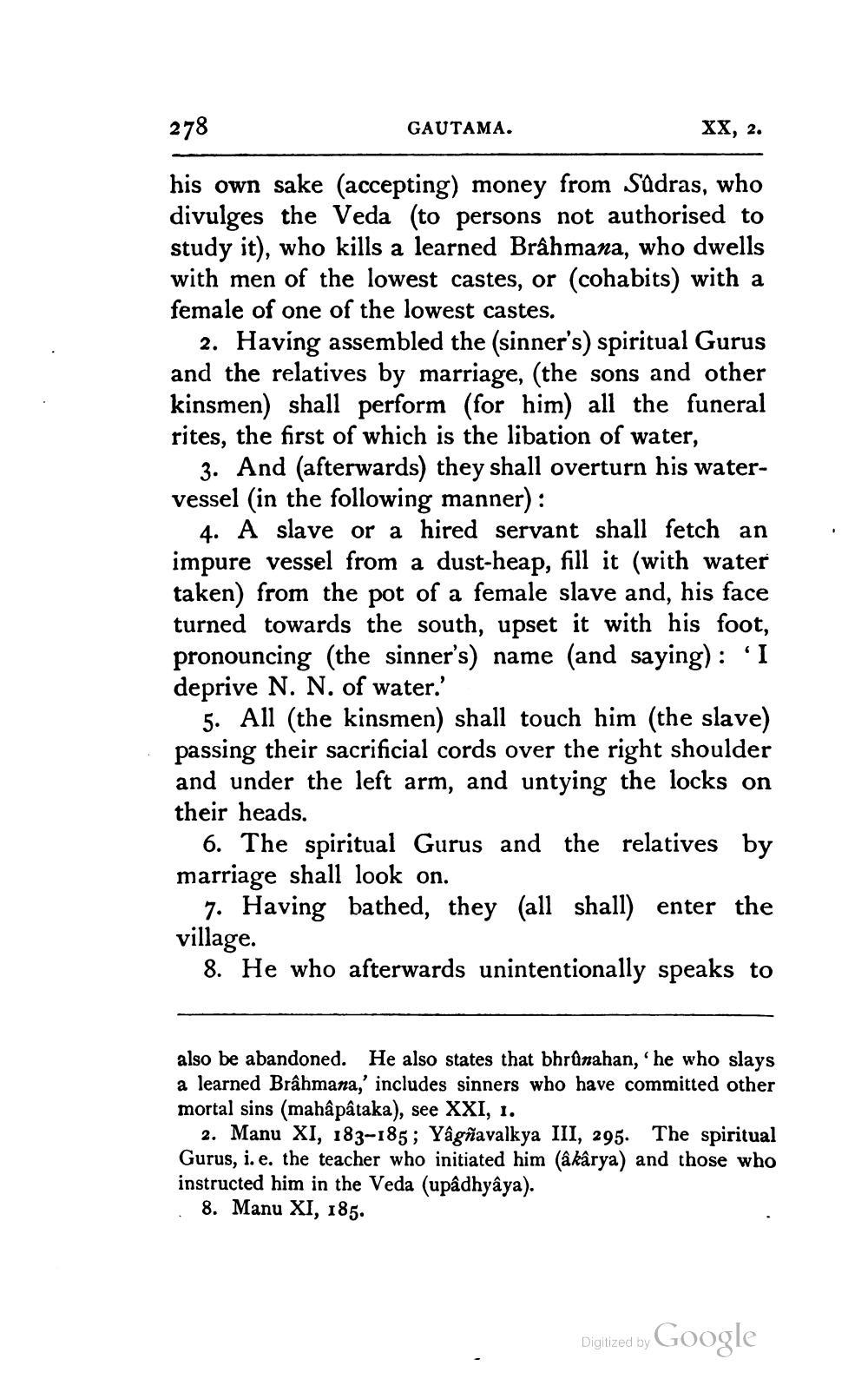________________
278
GAUTAMA.
XX, 2.
his own sake (accepting) money from Sudras, who divulges the Veda (to persons not authorised to study it), who kills a learned Brâhmana, who dwells with men of the lowest castes, or (cohabits) with a female of one of the lowest castes.
2. Having assembled the (sinner's) spiritual Gurus and the relatives by marriage, (the sons and other kinsmen) shall perform (for him) all the funeral rites, the first of which is the libation of water,
3. And (afterwards) they shall overturn his watervessel (in the following manner):
4. A slave or a hired servant shall fetch an impure vessel from a dust-heap, fill it (with water taken) from the pot of a female slave and, his face turned towards the south, upset it with his foot, pronouncing (the sinner's) name (and saying): 'I deprive N. N. of water.'
5. All (the kinsmen) shall touch him (the slave) passing their sacrificial cords over the right shoulder and under the left arm, and untying the locks on their heads
6. The spiritual Gurus and the relatives by marriage shall look on.
7. Having bathed, they (all shall) enter the village.
8. He who afterwards unintentionally speaks to
also be abandoned. He also states that bhrûnahan, 'he who slays a learned Brâhmana,' includes sinners who have committed other mortal sins (mahâpâtaka), see XXI, 1.
2. Manu XI, 183-185; Yâgñavalkya III, 295. The spiritual Gurus, i.e. the teacher who initiated him (âkârya) and those who instructed him in the Veda (upadhyâya).
8. Manu XI, 185.
Digitized by Google




